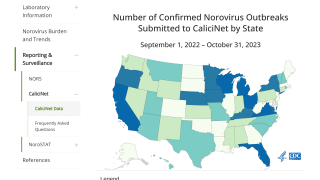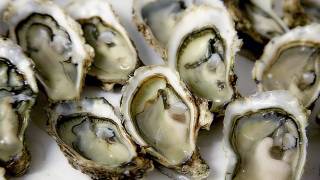Norovirus Vaccine Strategy Clarified

Researchers have discovered an antibody that broadly inhibits multiple strains of pandemic norovirus, a major step forward in the development of an effective vaccine for the dreaded stomach virus.
This is good news since there is no commercially available norovirus vaccine.
The most important discovery of this study is ‘a human antibody that can bind to a highly conserved region of the virus common among different strains of norovirus, potentially neutralizing all GII.4 strains of norovirus that exist in nature.’
This is important news since human noroviruses are the leading cause of acute gastroenteritis, according to the Centers for Disease Control and Prevention (CDC).
The study was led by the University of North Carolina at Chapel Hill Gillings School of Global Public Health and colleagues at the University of Texas at Austin and the National Institutes of Health Vaccine Research Center.
It describes for the first time the structure of the binding interaction between the norovirus and a human antibody that may work against many strains of the pandemic ‘stomach bug.’
Though there are more than 30 known genotypes of human norovirus, nearly 60 percent of outbreaks are caused by GII.4 genotype strains, the authors wrote.
A human antibody that can target these highly conserved areas will provide broad protection for a prolonged period of time. With this knowledge, vaccine developers will have a better understanding of how, and how often, to reformulate the vaccine over time.
“We’ve established an understanding of the virus and how it changes, how the body’s immune response targets it and how we can use that information to make a better vaccine, said the researchers in a press release.
“In order to design an effective vaccine for norovirus, scientists needed to identify a neutralizing antibody that could work against many strains of the virus, as well as strains that will circulate in the future.”
The paper’s authors partnered with Takeda Vaccines, which is in Phase 2b clinical trial with a human norovirus vaccine candidate, TAK-214.
The TAK-214 vaccine candidate uses virus-like particle antigens, which are proteins that precisely mimic the outer surface of norovirus. This vaccine includes antigens from genotypes GI.1 and GII.4, to represent both of the genogroups that cause the majority of human illness.
Recent norovirus news:
- Tetravalent Norovirus Vaccine Study Launched in China
- Norovirus Oral Vaccine Candidate Launches Phase 1b Study
- Cruising with Norovirus in 2019
Norovirus is an inflammation of the stomach and intestines. It accounts for nearly one in five cases of diarrhea and vomiting, and is responsible for an estimated 200,000 deaths per year, mostly in infants, children and the elderly, says the CDC.
Norovirus illness is not related to the flu, which is caused by the influenza virus.
Authors who collaborated on this research are George Georgiou, Jonathon McDaniel, and Scott Kerr, from the University of Texas at Austin’s Department of Chemical Engineering, Department of Molecular Biosciences and Institute for Cell and Molecular Biology; Jan Vinje, and Veronica Costantini, from the Centers for Disease Control and Prevention; and Peter Kwong, Anita Changela, and Raffaello Verardi, from the Vaccine Research Center at the National Institutes of Health’s National Institute of Allergy and Infectious Diseases.
No conflicts of interest were disclosed.
Our Trust Standards: Medical Advisory Committee
- Sera Antibody Repertoire Analyses Reveal Mechanisms of Broad and Pandemic Strain Neutralizing Responses after Human Norovirus
- Scientists discover a powerful antibody that inhibits multiple strains of norovirus
- CDC: Norovirus
- Long-Term Immunogenicity of the Norovirus GI.1/GII.4 Bivalent Virus-like Particle (VLP) Vaccine (NoV Vaccine) in Adults
- Norovirus Bivalent-Vaccine Efficacy Study
























